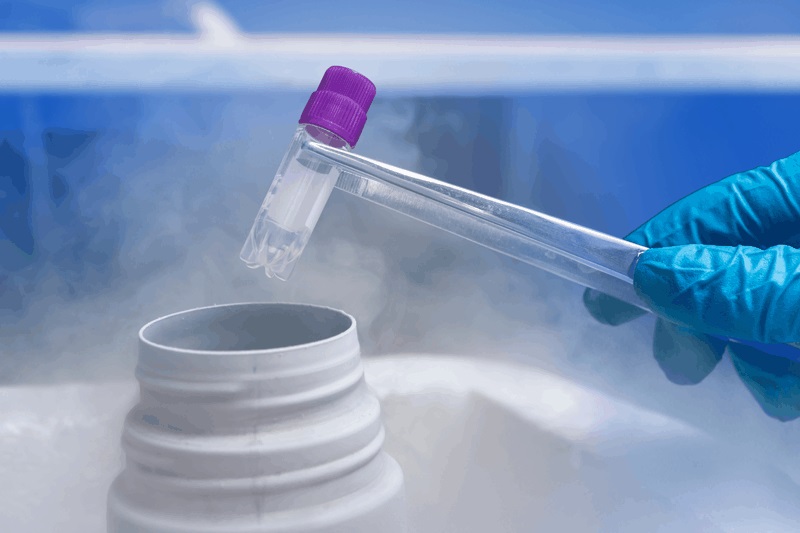
In the realm of assisted reproductive technology, In Vitro Fertilization (IVF) has emerged as a beacon of hope for couples struggling with infertility. As a complex and multi-step procedure, IVF requires careful coordination and expertise. The final phase of this process, known as embryo transfer, plays a crucial role in achieving a successful pregnancy. In Noida, a city renowned for its advanced medical facilities, the expertise of the best IVF doctors in Noida and the support provided by IVF clinics are vital components of this last stage. In this blog post, we will explore the intricacies of embryo transfer, shedding light on its significance and the steps involved.
Understanding the Embryo Transfer Process
Embryo transfer is the culmination of an extensive IVF journey. Its primary objective is to implant the fertilized embryo into the uterus, where it can develop and grow into a healthy pregnancy. Prior to the transfer, several preparatory measures are taken. These include the administration of hormonal medications to synchronize the recipient’s menstrual cycle with the donor’s or to prepare the uterus for implantation. Close monitoring through ultrasounds and blood tests ensures optimal endometrial receptivity, a crucial factor for a successful transfer.
Embryos selected for transfer can be fresh, frozen, or developed to the blastocyst stage, depending on the specific circumstances and recommendations from the medical team. The grading of embryos based on their quality and viability is instrumental in selecting the most suitable candidate for transfer. This process requires expertise and meticulous evaluation, provided by the best IVF doctor in Noida.
The Embryo Transfer Procedure
The actual embryo transfer procedure is a relatively simple and painless process. It typically takes place in an IVF clinic’s procedure room. Prior to the transfer, the patient may be given a mild sedative to help them relax. The use of ultrasound guidance ensures precise embryo placement, maximizing the chances of successful implantation.
A thin catheter is then gently inserted through the cervix into the uterus. The embryo, protected within a small amount of fluid, is carefully transferred into the uterine cavity. The entire procedure is usually completed within a matter of minutes. It is important to note that discomfort during the procedure is minimal, and anesthesia is not required.
Once the transfer is complete, the patient may be advised to rest for a short period before being allowed to resume normal activities. The IVF clinic in Noida will provide specific post-transfer instructions, which may include guidelines regarding physical activity, sexual intercourse, and medication administration.
What to Expect After Embryo Transfer
Following the embryo transfer, the luteal phase begins. This phase is crucial for the potential implantation of the embryo and early pregnancy development. To support this process, the patient may be prescribed hormonal medications, such as progesterone, to maintain an optimal environment in the uterus.
During the subsequent two-week waiting period, it is common to experience a mixture of hope, anxiety, and anticipation. While some early signs of pregnancy, such as mild cramping or breast tenderness, may occur, they are not definitive indicators. It is important to remember that every individual and IVF cycle is unique, and symptoms can vary.
Emotional support during this waiting period is vital. Engaging in stress management techniques, seeking counseling, or joining support groups can help alleviate anxiety. Regular communication with the IVF clinic in Noida, discussing concerns, and adhering to scheduled follow-up appointments can provide reassurance and professional guidance.
Conclusion
Embryo transfer represents the culmination of an intricate IVF journey, offering renewed hope to couples longing for a child. In Noida, the expertise of the best IVF doctors and the advanced facilities provided by IVF clinics play a pivotal role in ensuring the success of the embryo transfer process.
By understanding the embryo transfer process, individuals can feel empowered and informed as they embark on their IVF journey. From the preparation and evaluation of embryos to the actual transfer procedure, each step is carefully orchestrated to maximize the chances of successful implantation.
While the embryo transfer procedure itself is relatively quick and painless, the emotional journey that follows can be filled with anticipation and uncertainty. It is essential to remain patient and optimistic during the two-week waiting period, understanding that early signs of pregnancy may or may not be present. The support and guidance provided by the IVF clinic in Noida are invaluable during this time, offering reassurance and addressing any concerns that may arise.
In conclusion, embryo transfer is the final and crucial step in the IVF process, representing the possibility of realizing the dream of parenthood. The expertise of the best IVF doctors in Noida, along with the support and advanced facilities of IVF clinics, contribute to the success of this procedure. While the road to pregnancy may be challenging, staying positive, seeking emotional support, and maintaining open communication with the medical team can help individuals navigate this journey with hope and resilience.
FAQs (Frequently Asked Questions)
What is the success rate of embryo transfer in IVF?
The success rate of embryo transfer can vary depending on various factors, such as the age of the patient, the quality of embryos, and underlying medical conditions. The best IVF doctors in Noida can provide specific success rates based on individual circumstances.
Are there any risks or complications associated with the embryo transfer procedure?
Embryo transfer is generally a safe procedure with minimal risks. Some potential risks include infection, bleeding, or discomfort during or after the procedure. However, these complications are rare, and the medical team takes precautions to minimize any potential risks.
How long should I wait before taking a pregnancy test after the embryo transfer?
The waiting period for taking a pregnancy test after embryo transfer is typically around two weeks. This allows sufficient time for the embryo to implant and for the pregnancy hormone (hCG) to build up in the body, which can be detected by a pregnancy test.
Can I resume normal activities immediately after the transfer?
While taking it easy for a short period after the transfer is advisable, most individuals can resume their normal activities soon afterward. However, it is important to follow the specific instructions provided by the IVF clinic in Noida regarding physical activity, rest, and any restrictions.
What can I do to improve the chances of successful implantation after the transfer?
To improve the chances of successful implantation, it is essential to follow the recommended guidelines provided by the medical team. This may include taking prescribed medications, maintaining a healthy lifestyle, and avoiding activities that may be detrimental to the implantation process.
If the first embryo transfer fails, can I try again?
If the first embryo transfer is unsuccessful, it is possible to try again in subsequent IVF cycles. The best course of action can be determined by consulting with the IVF clinic and the best IVF doctors in Noida, who can provide personalized recommendations based on individual circumstances.
Are there any alternative methods to embryo transfer in IVF?
Embryo transfer is the standard method for achieving pregnancy in IVF. However, in certain cases, alternative methods such as intracytoplasmic sperm injection (ICSI) or assisted hatching may be recommended by the medical team based on specific needs and circumstances.




